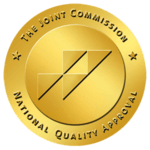Alcohol and the Brain
The brain is very susceptible to the use of alcohol, and AUD can have a plethora of prolonged effects on one’s brain, even affecting one’s neurons and brain chemistry. From nausea and headaches to sustained feelings of anxiety, depression, anger, mood swings, insomnia, nightmares, and difficulty forming and recalling memories, alcohol’s effects on the brain are extensive. Many of these effects persist even after the immediate effects of alcohol have worn off.
Alcohol and the Body
Excessive and prolonged use of alcohol also affects the rest of the body, especially one’s heart and liver. Heart disease, elevated blood pressure, arrhythmia, cardiomyopathy, and stroke are all possible due to alcohol use. The liver can be overly taxed as it processes the toxins alcohol regularly introduces to the body. Cirrhosis, fibrosis, and other liver diseases are common due to excessive alcohol use, and seeking professional detox and medical treatment is necessary to prevent these destructive effects of alcohol on the body.
Alcohol and Dual-Diagnosis
Dual-diagnosis indicates the presence of a mental health disorder coupled with substance use disorder (SUD). Anxiety disorders, depression, bipolar disorder, and other mental health disorders can all inform a client’s use of addictive substances, often creating dangerous attempts at self-medication. Dealing with mental health disorders and AUD in tandem is crucial for effective treatment and recovery, and the trained professionals at Redpoint are equipped to help clients navigate their emotional needs and develop personalized coping strategies for a sober future.
Taking Your First Step at Redpoint
There are as many paths to sobriety as there are people, and having a personalized approach is crucial for making the most of your time in a treatment program. At Redpoint, we champion the idea that each client can personalize their recovery, and guide each client through their own best recovery path. By utilizing cognitive-behavioral therapy (CBT), dialectical behavior therapy (DBT), motivational interviewing, and a myriad of experiential therapies, we create a transformative experience to help each client pursue their personal goals beyond the use of alcohol.
Individual and group therapy, medication-assisted treatment to help with withdrawal or the emotional trials of addiction, and developing life skills and relapse prevention plans are all part of Redpoint’s approach to a sober future, all of which can be catered to each client’s individual needs and goals.













